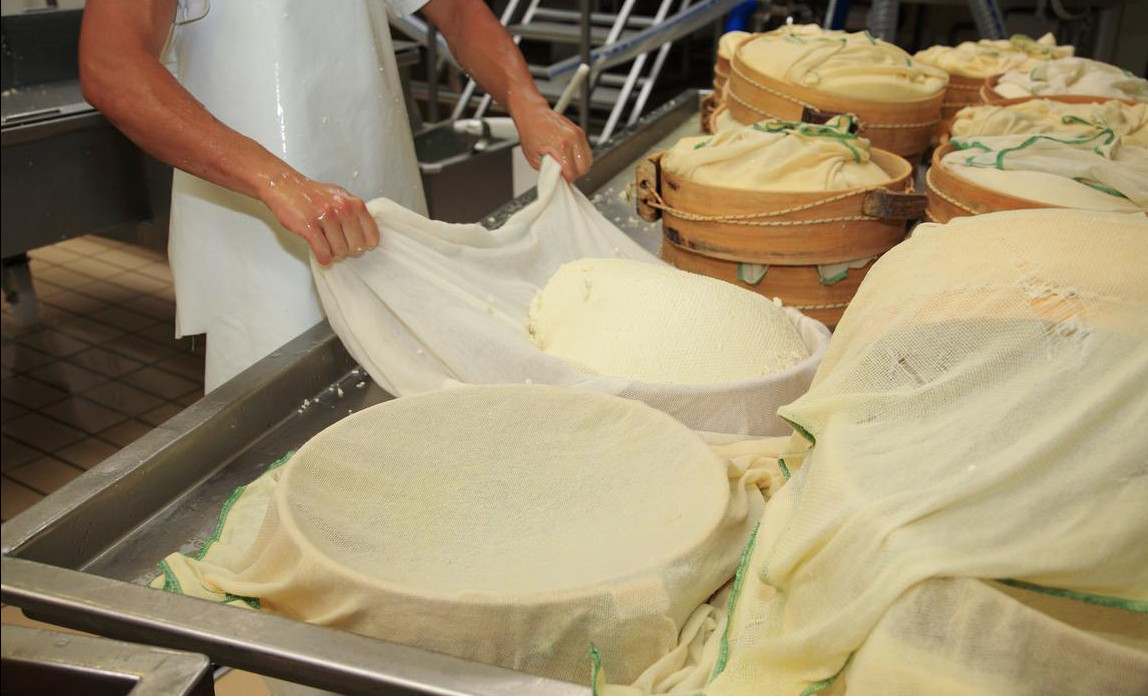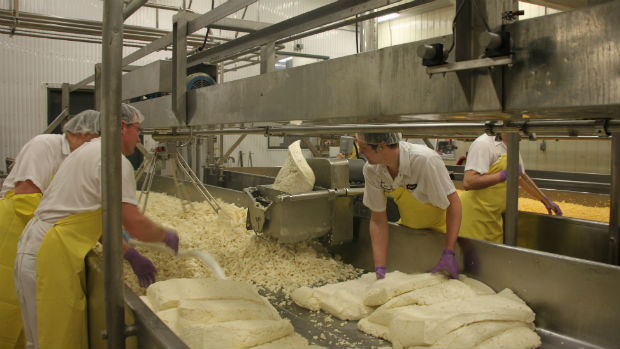Where to Buy Cheese: Top Cheese Shops Melbourne
Where to Buy Cheese: Top Cheese Shops Melbourne
Blog Article
Comprehending the Scientific Research Behind Cheese Production: From Milk Selection to Final Item
The intricate process of cheese production starts with the careful selection of milk, a selection that profoundly affects the end product's taste and texture. Comprehending the crucial role of microorganisms in fermentation discloses how these bacteria change lactose right into lactic acid, an essential ingredient in establishing the cheese's character. Following this, the coagulation process transforms fluid milk right into curds, establishing the phase for aging, where real complexity of flavors emerges. Quality control remains necessary at every stage, yet the subtleties of these processes might still hold shocks that merit more exploration.
Milk Choice Process
The choice of milk is a vital step in the cheese manufacturing process, as it straight affects the taste, appearance, and top quality of the end product. Different elements must be taken into consideration throughout this choice, including the source of the milk, the type of the pets, and their diet. Cow's milk, goat's milk, and lamb's milk each have distinctive residential properties that contribute to the unique features of various cheese ranges.

In addition, the nutritional content of the milk, influenced by the animal's diet, can alter the cheese's final qualities. High-quality milk, sourced from healthy animals, guarantees a remarkable cheese product, stressing the importance of rigorous high quality control procedures in the milk selection process. Thus, cautious factor to consider in milk selection is necessary for effective cheese production.

Role of Microorganisms in Fermentation
Adhering to the mindful option of milk, the fermentation process plays a pivotal duty in cheese manufacturing, where microorganisms are introduced to change the milk into cheese. The key function of these microorganisms is to convert lactose, the sugar existing in milk, into lactic acid. This acidification not just alters the pH of the milk however also plays a vital role in taste development, structure, and preservation of the end product.
Lactic acid bacteria (LABORATORY), such as Lactococcus and Streptococcus species, are generally used in cheese manufacturing because of their ability to prosper in milk and their contribution to the fermentation procedure. The metabolic tasks of these germs lead to the manufacturing of various metabolites, consisting of taste compounds and antimicrobial compounds, which inhibit perishing organisms and pathogenic bacteria, consequently improving cheese safety.
Furthermore, the fermentation procedure influences the general qualities of celebrity, including its scent, preference, and structure. Various stress of microorganisms can impart unique tastes and add to the special accounts of various cheese types. Hence, the selection of bacterial societies is an important action in achieving the preferred cheese top quality and consistency.
Coagulation and Curd Development
In the cheese production procedure, coagulation marks a crucial transition from fluid milk to strong curds. This procedure is usually enhanced by the acidic setting produced by lactic acid germs, which even more aids in coagulation by lowering the pH of the milk.
The resulting curds are created as the fluid whey starts to divide. Elements such as temperature, the amount of rennet made use of, and the moment enabled coagulation are important in identifying the texture and top quality of the curds. As an example, higher temperatures and longer coagulation times commonly generate stronger curds, ideal for tougher cheeses. cheese for sale online.
Once curds are created, they are reduced into smaller sized pieces, allowing whey to escape a lot more efficiently. This action is vital, as it influences the dampness material and overall attributes of the final cheese product. Proper monitoring of coagulation and curd formation is crucial for achieving specific cheese styles and desired flavor accounts.
Aging and Taste Advancement
After the curd has been developed and whey check this site out has actually been drained, the next stage in cheese production is maturing, also known as maturation. This crucial process substantially affects celebrity's last taste, texture, and aroma. During aging, different biochemical and microbiological makeovers take place, impacting the overall sensory profile.
The aging atmosphere, including temperature and humidity, plays an essential role in flavor development. Enzymes and germs existing in celebrity help with the malfunction of healthy proteins and fats right into smaller molecules, bring about the formation of amino acids, fatty acids, and unstable substances. These changes add to the complexity of taste and fragrance, with distinctive profiles emerging based upon the particular cheese selection.
Additionally, the period of aging is pivotal; shorter aging durations generally yield milder flavors, while longer maturation cause more durable and nuanced profiles. Elements such as the milk source, cheese type, and certain aging strategies better Website boost the variety of tastes generated. Inevitably, aging is a delicate equilibrium of time, ecological problems, and microbial activity, culminating in the unique characteristics that define each cheese selection.
Quality Assurance in Cheese Manufacturing
Ensuring high standards throughout celebrity production procedure is crucial for supplying a top quality product that fulfills customer expectations - cheese for sale online. Quality assurance (QC) includes various phases, starting from raw milk selection to the last aging process. Each phase needs meticulous focus to information to avoid contamination and ensure uniformity
During milk option, manufacturers need to examine elements such as fat content, pH degrees, and microbial top quality. Normal testing for somatic cell matters and bacterial loads is essential to ensure the milk's viability for cheese making. In the production stage, QC measures consist of monitoring the temperature level, level of acidity, and rennet activity, which considerably affect appearance and flavor.
As cheese grows, constant sensory evaluations and research laboratory analyses are carried out to assess taste growth, texture, and total quality. Any type of discrepancies from developed requirements necessitate restorative actions to keep product integrity.
In addition, paperwork and find out here now traceability are essential components of effective high quality control, enabling manufacturers to track celebrity from farm to consumer. By carrying out robust QC methods, cheese suppliers can not only boost item high quality yet also build consumer count on, ensuring their location in an open market.

Final Thought
To conclude, the scientific research of cheese manufacturing encompasses numerous critical points, each substantially impacting the end product. The mindful choice of milk, the vital role of germs in fermentation, the change of fluid milk right into curds with coagulation, and the aging process jointly add to the development of special flavors and textures. In addition, rigid quality assurance measures guarantee that each cheese selection satisfies recognized criteria, consequently enhancing customer contentment and preserving the integrity of the cheese-making tradition.
Report this page